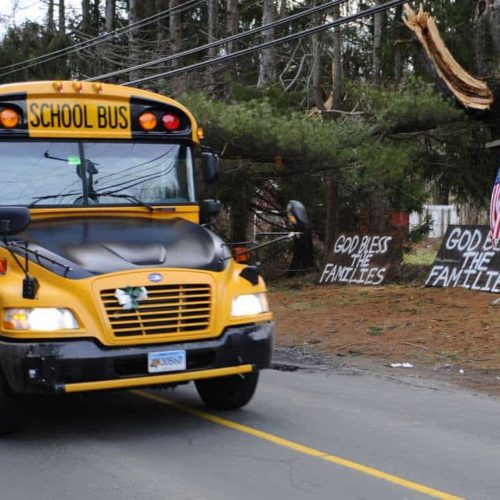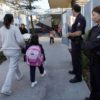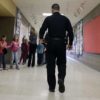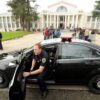Introduction
The National Council of Juvenile and Family Court Judges is voicing concern over the push to put armed police or guards into American schools following the Newtown school massacre of 20 first-graders and six staff last December.
On Tuesday, the Reno, Nev.-based group posted an excerpt of a letter sent to Vice President Biden, who has been leading a month-long effort to gather ideas for more effective gun restrictions and improved school safety. The White House is reportedly poised to reveal some recommendations Wednesday at a midday press conference.
In its letter to Biden, the NCJFCJ expressed strong misgivings about the prospect of communities putting armed guards in schools – which could become even more likely if federal dollars are offered to help schools make that choice.
Published reports indicated Biden’s task force was considering such a plan, which has also been pushed by Sen. Barbara Boxer, a liberal Democrat from California. In addition, the National Rifle Association has been vocal in its backing of armed security in the nation’s schools.
Echoing concerns by civil-rights and juvenile-justice advocates, the NCJFCJ warns in its letter than an expansive police presence in schools can lead to unintended and negative consequences. The judges’ group argues that the posting of police officers to ensure safety has in the past led to misguided crackdowns on kids.
The letter notes that many counties across the country saw an upsurge in arrests of minors for modest indiscretions after districts began deploying police on campuses during the 1990s. The increased police presence on campuses has not improved school safety, the judges’ organization argues, while asserting that graduation rates in some of these schools have fallen. Some students’ futures have been jeopardized, the judges say, by early introduction into the criminal-justice system.
“The influx of police in schools has been one of the main contributors to the growing number of children funneled into this pipeline,” the letter to Biden says. “Research shows that aggressive security measures produce alienation and mistrust among students which, in turn, can disrupt the learning environment. Such restrictive environments may actually lead to violence, thus jeopardizing, instead of promoting, school safety.”
The NCJFCJ’s letter was signed by its president, Judge Michael Nash, who is the Los Angeles County Juvenile Court’s presiding judge.
The letter refers to the 75-year-old NCJFCJ as one is a nation’s oldest and largest judicial membership organizations. Members study and recommend methods for improving juvenile-justice practices and advise more than 30,000 juvenile-justice professionals.
Nash, along with other juvenile court judges, has been an enthusiastic participant in a push to reform school-discipline practices in Los Angeles and elsewhere, in part by reducing the use of police officers at schools.
He was interviewed by the Center for Public Integrity for a recent series of stories about the deployment of school police in the Los Angeles Unified School District, the area’s largest. Officers in the California district, data analysis showed, were ticketing thousands of mostly low-income Latino and black students annually for alleged conduct ranging from tardiness to school-yard fights.
In March, the NCJFCJ took an official position that discipline practices had grown too harsh in a some regions across the country, resulting in too much police involvement and too many students sent to court for relatively minor misbehavior.
In July, the NCJFCJ began a national project to reduce school expulsions and promote new ways to keep students engaged in school.
“Any proposal to place more armed personnel in school,” the letter says, “would be counterproductive to the success of this project.”
In conclusion, Nash’s letter invites Biden to contact the group. The judges, the letter says, are “committed to remain involved in ongoing conversations to craft solutions to enhance student safety while promoting student school involvement and success.”
Last Friday, the Washington, D.C.-based Advancement Project and several other organizations involved in school-discipline reform released a report also expressing concerns about putting police in schools in response to the Newtown shootings. The Advancement Project has also begun a petition drive to oppose financing armed guards in schools.
After a number of its representatives met with aides to Biden and President Obama, the National Juvenile Justice and Delinquency Prevention Coalition also issued a series of recommendations for a “comprehensive” approach aimed at keeping children safe from gun violence.
“Across the country, people are searching for answers,” the Washington, D.C.-based coalition says in its recommendations. “The NJJDPC views this as a critical moment to invest more broadly in the true safety of proven strategies, not in the false sense of security of arming teachers or increasing police presence in every school. It is our view that true safety will not result from having more guns in schools or other places where youth congregate.”
The coalition includes the Campaign for Youth Justice, the National Juvenile Defender Center and the Center for Children’s Law and Policy.
The Newtown children and teachers and other staff were gunned down by a disturbed local man who shot his way into the school with semi-automatic weapons belonging to his mother.
The National Rifle Association, in response to the shooting, has offered to train staff at schools in communities that decide to arm teachers or other employees who are designated to protect students in the event of an attack.
In the meantime, some communities are already taking action unilaterally.
The small Montpelier school district in rural northeast Ohio, for example, has decided to pay for training four employees – who are not teachers — who have agreed to carry their own guns inside the district’s one building. About 1,000 students are enrolled in kindergarten through high school. Legislators in various states, including South Carolina and Oklahoma, are considering legislation to allow teachers or other staff to have guns inside schools.
And in Arizona, the Associated Press reported, Maricopa County Sheriff Joe Arpaio – who has been investigated for allegedly violating the civil rights of Hispanics – plans to post armed volunteers on the perimeters of schools.
Read more in Education
Criminalizing Kids
When schools call police on kids
Schools refer tens of thousands of students to law enforcement every year. Black children and students with disabilities get the brunt of it.
Criminalizing Kids
Our reports show why school police are under fire after Floyd protests
Districts removing cops or considering it after Black Lives Matter marches





Join the conversation
Show Comments